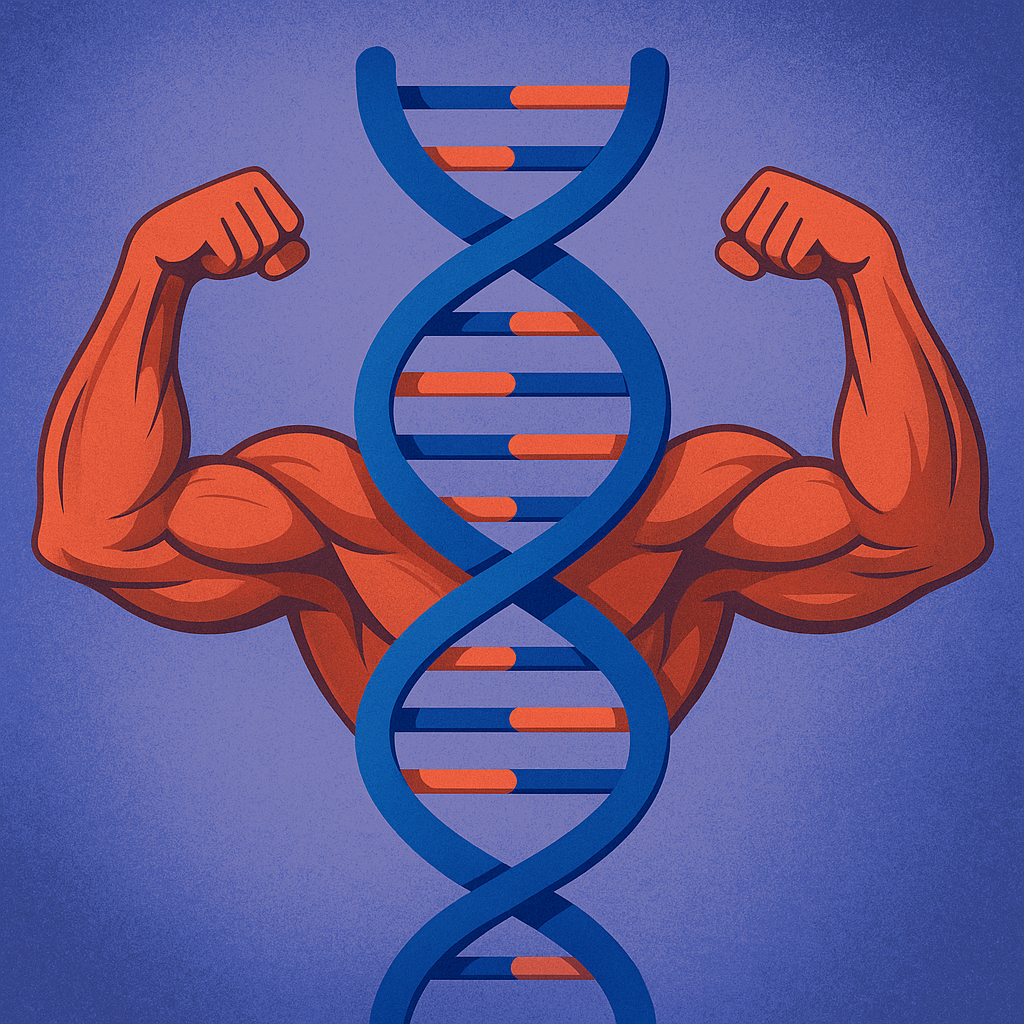When analyzing DNA tests, I increasingly notice a number of gene polymorphisms that make it impossible to build big muscles. The most interesting thing is that people with these genes go to some gym, where some dumb trainer (whose genes are perfectly fine) will tell you there's no such thing as genetics, only laziness.
So you listen to it, walk, and "pump up," but the effect on your muscles is temporary, or nonexistent. Moreover, after such workouts, you feel exhausted and depressed, your muscles ache, you have no energy, you get sick more often, etc. Sound familiar?
This is where some people begin to understand that there are some limiting factors that prevent your muscles from withstanding heavy physical exercise, and most importantly, prevent the desired hypertrophy, as seen in the Terminator poster. These factors are your genes; nature doesn't need many people with big muscles.
Here are the top 3 genetic muscle traits I've seen in DNA tests:
Polymorphisms in AMPD1 (adenosine monophosphate deaminase 1, AMP-deaminase-1) . This enzyme plays a key role in skeletal muscle energy metabolism. When this enzyme gene is defective, ATP resynthesis is disrupted, AMP and adenosine levels increase, leading to chronic muscle fatigue. The positive side of this polymorphism is that such people often don't accumulate ammonia (a toxic metabolite). I carry this polymorphism myself, and frankly, it took a long time to correct my muscle fatigue and maintain my physical activity level comparable to other athletes, but that's a different story. In general, this polymorphism won't help you gain massive muscle mass, but it can help you achieve an acceptable level of endurance and strength.
ACTN3 (Alpha-actinin-3) polymorphisms . Your muscle size depends on polymorphisms in this gene. A knockout of this gene results in decreased strength and speed, but improved aerobic efficiency. Simply put, if you're deficient in ACTN3, you won't be a bodybuilder, but you might be a runner. And yes, I also have this polymorphism, and I can confirm from my own experience that aerobic efficiency can be higher than in those with larger muscles.
Polymorphisms in MSTN (Myostatin) . These have positive effects on muscle. This protein inhibits muscle growth. Why it does this is also questionable (meaning having more muscle isn't always a good thing), but people with its deficiency experience muscle growth by leaps and bounds. These people typically have large limbs, even without training, and with training, they can achieve high results in sports. Many bodybuilders are deficient in this protein due to the polymorphisms I'm writing about. In general, having a myostatin deficiency means you'll have relatively large muscles without going to the gym. This polymorphism can offset the problems caused by the polymorphisms mentioned above. That is, it can compensate for them.
I could go on and on about other muscle-related genes, but some other time, I'll just point out that detoxification genes are also important for people who exercise , as any physical activity is stressful and leads to the accumulation of metabolic waste products. If there are imbalances in the detoxification genes, you'll be "poisoned" by these products, and exercise will only be detrimental!

